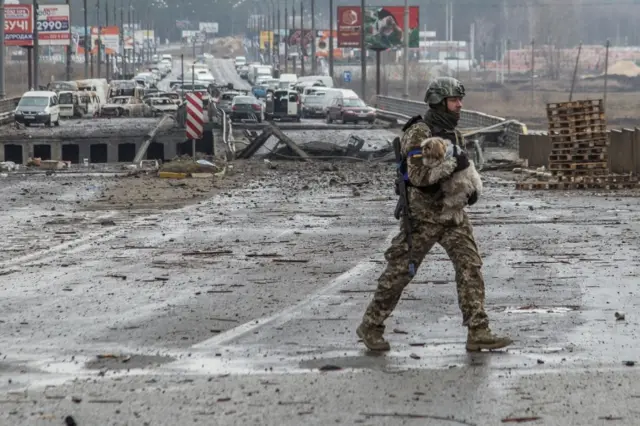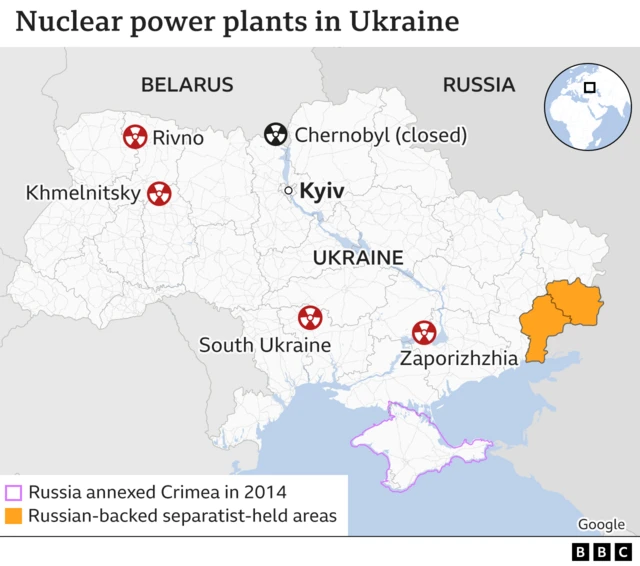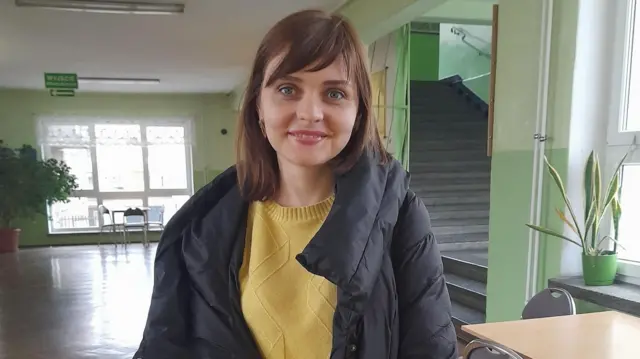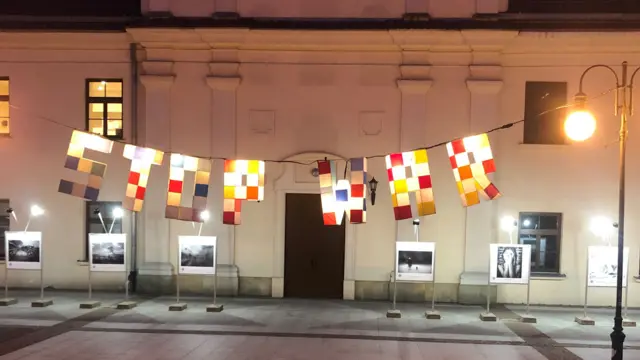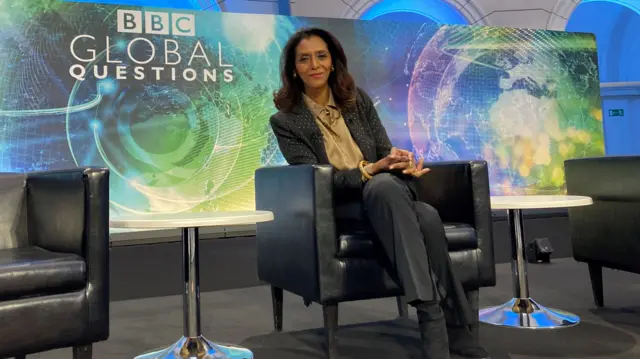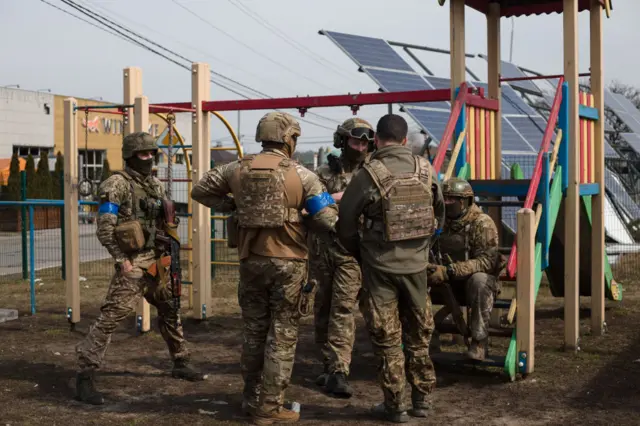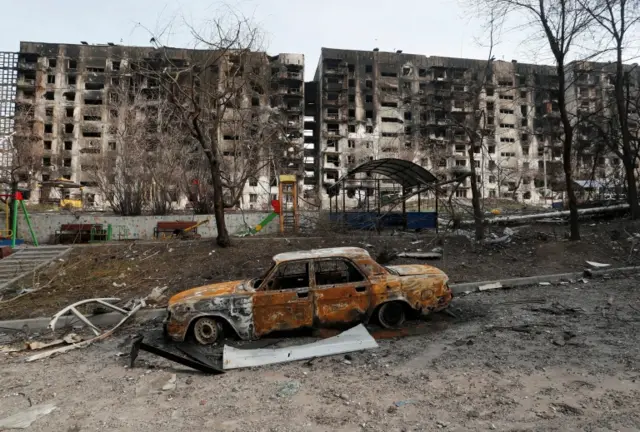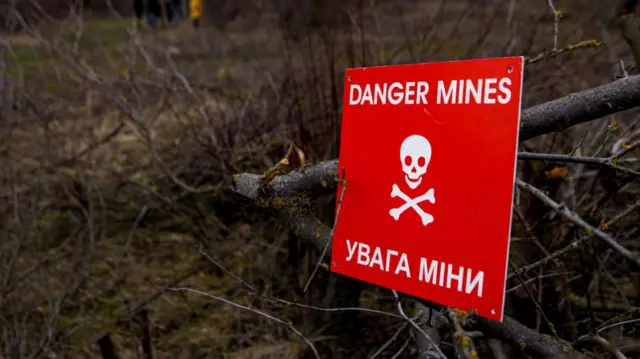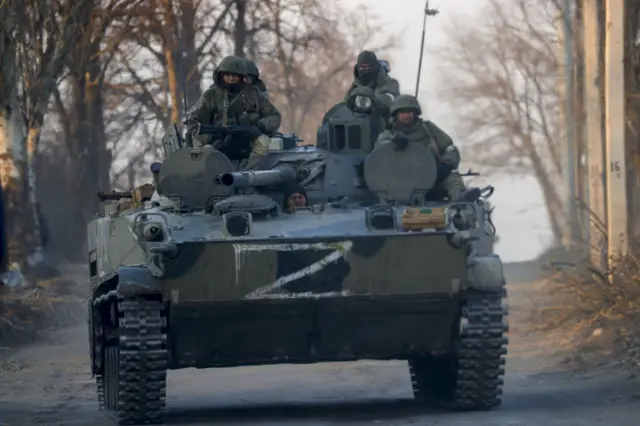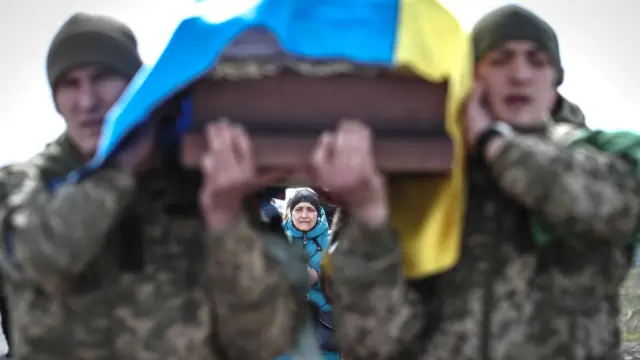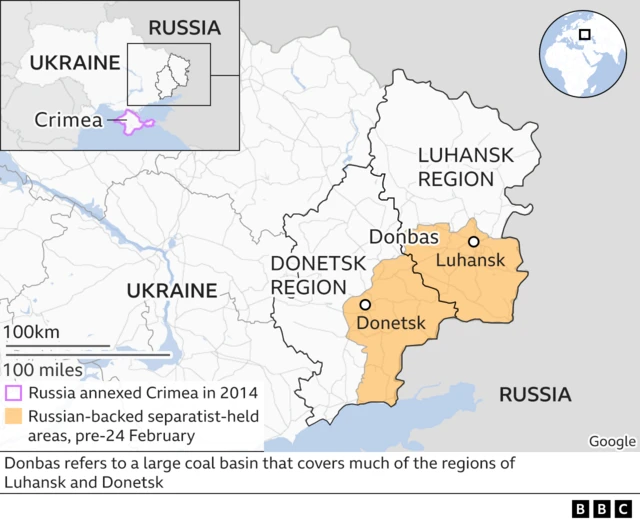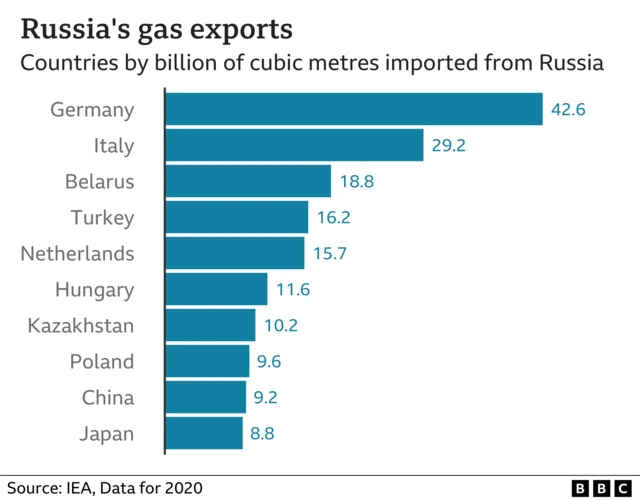Biden to announce record oil release from stockpilespublished at 18:03 BST 31 March 2022
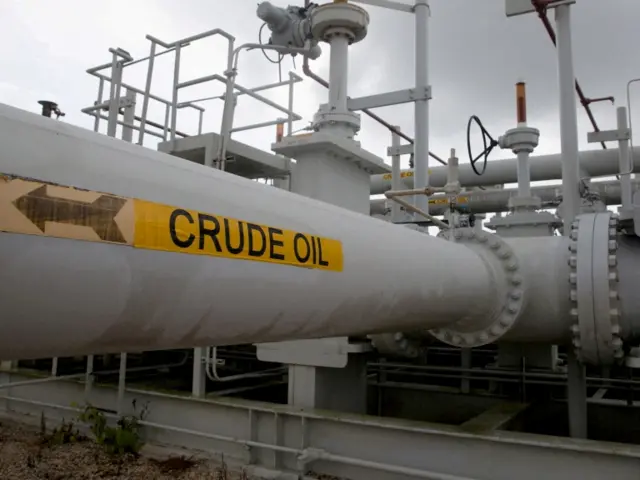 Image source, Reuters
Image source, ReutersPresident Joe Biden will shortly announce the release of a record amount of oil from US strategic stockpiles, says the White House.
It says an unprecedented one million barrels a day will be released to the market from US reserves for the next six months.
It hopes the move will dampen soaring fuel prices in the wake of Russia's invasion of Ukraine.
Oil prices began to fall earlier today after reports emerged that the US was considering tapping its crude reserves.

